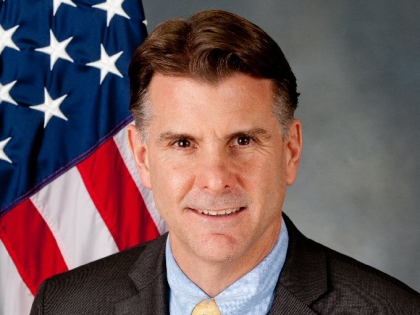
Senator Gipson Announces Passage of Legislation to Combat Heroin Abuse in NYS
Terry Gipson
June 9, 2014

For Immediate Release: June 9, 2014
Media Contact: Jonathan Heppner | 845.463.0840 | heppner@nysenate.gov
SENATOR GIPSON ANNOUNCES PASSAGE OF LEGISLATION TO COMBAT HEROIN ABUSE IN NYS
ALBANY, NY – New York State Senator Terry Gipson (D-Dutchess, Putnam) today announced that legislation that he co-sponsored, S.7662A, which takes important steps towards ensuring that private sector insurance carriers in New York provide adequate coverage for addiction treatment, has passed the State Senate. Additionally, 13 other bills co-sponsored by Senator Gipson aimed at combating heroin abuse also passed.
“During my first term in office, I have met with families, friends and community members who have been impacted by this devastating addiction. I’m thankful for their advocacy. It’s because of their efforts that these pieces of legislation have passed the State Senate,” said Senator Gipson. “Amongst education and prevention, it’s crucial that we ensure our loved ones who are suffering from addiction receive the best possible care in order to save their lives. It’s imperative to the health and future of our families, our community and our state that we continue to do everything in our power to end this epidemic.”
Additional bills co-sponsored by Senator Gipson aimed at combating heroin abuse that passed the State Senate today include:
S.6691: Aims to increase public awareness and provide additional public information regarding the proper disposal of household prescription drugs.
S.3985: Requires the Department of Environmental Conservation (DEC), in consultation with the State Police, to establish a demonstration drug disposal program in representative rural, suburban and urban areas of the state in order to provide data that could be used to determine the most effective methods of disposal.
S.2948: Directs the Commissioner of Health to establish an opioid addiction treatment and hospital diversion demonstration program.
S.7125: Aims to prevent the abuse and diversion of opioid analgesic drugs by ensuring that opioid analgesic drugs which incorporate abuse-deterrent technologies are dispensed whenever possible.
S.7649A: Provides an informational card with every Narcan kit distributed under the Opioid Overdose Prevention Program.
S.7650: Requires the Office of Alcoholism and Substance Abuse services to create a demonstration program to provide wraparound services to adolescents and adults who have entered and successfully completed treatment programs in an effort to expand their existing case management services and to build relationships in communities to prevent persons relapsing.
S.1338: Establishes the criminal sale of a controlled substance upon the grounds of a drug or alcohol treatment center as a class B felony.
S.2173A: Adds "park grounds and playgrounds" to statute currently providing increased penalties for sale of controlled substances to certain persons if such sale occurs on or within 1,000 feet of school grounds; defines "park ground or playgrounds" to mean in, or within any building or structure or any fields, lands or grounds owned, leased or maintained by the state, any agency or municipality thereof, etc., for the purposes of recreation or leisure.
S.7651A: Establishes protocols for assisted outpatient treatment for substance abuse.
S.7654: Establishes a public awareness and educational campaign regarding heroin and prescription opioid pain medication addiction.
S.7655A: Directs the department of correctional services and community supervision and the OASAS to conduct a study to determine the feasibility of converting certain correctional facilities into treatment centers.
S.7660: Authorizes the Commissioner of Health to establish standards, and review and implement requirements for the performance of continuing medical education on pain management, palliative care and addiction.
S.7661: Allows for the possession and use of an opioid antagonist (naloxone) in schools to assist a person believed to be experiencing on opioid overdoes and provides such schools with good Samaritan protections against criminal, civil and administrative liability.
------ ------
Share this Article or Press Release
Newsroom
Go to NewsroomA Message From Senator Terry Gipson
December 18, 2014
Senator Gipson’s Statement on Historic Lyme Legislation Signed Into Law
December 18, 2014
State Senator Gipson’s Statement on NYS Fracking Decision
December 17, 2014